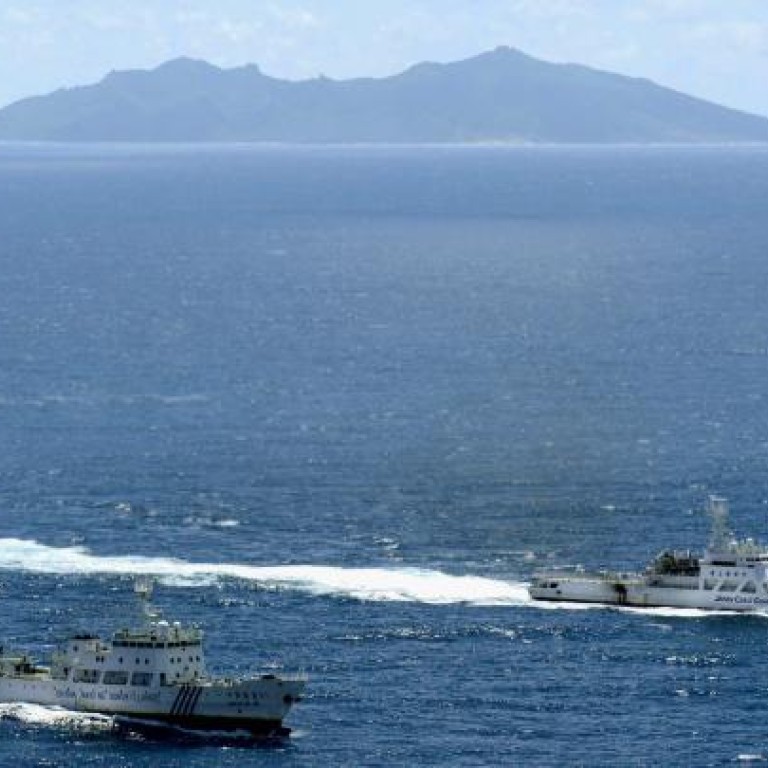
China must stand up to Japan's Diaoyu claims
Huang Xiang says a confrontation may be what Chinese need to exorcise wartime humiliation
If Faust had a counterpart in modern China, it would no doubt have been Wang Jingwei, the linguistic equivalent in Chinese of "Vidkun Quisling". But instead of trading his soul with the devil for worldly pleasures, at least Wang, the Nationalist revolutionary hero, thought he had succeeded in bargaining for a time frame for the withdrawal of Japanese troops from China proper in his secret negotiations.
Wang's fate was sealed as soon as he set foot in Japanese-occupied Nanking, for when Japan openly declared the deal, mention of Japanese withdrawal had all but vanished.
Wang protested, to no avail, and the rest is history, as we well know.
I mention this historical trivia because the Japanese are now doing exactly the same thing - putting on a show of their well-tried-and-tested amnesiac qualities - this time on the question of the Diaoyu Islands.
Quite frankly, the Japanese have been outrageous with regards to the Diaoyus.
These islands, referred to today as the Senkakus by Japan, were in fact captured in 1895 by the Imperial Army, which was on its way to conquer Taiwan. The Japanese say, first, that the islets were uninhabited; then they claim to have the "right of pre-empting acquisition", since the islets were first discovered by an Okinawan entrepreneur named Koga Tatsushirou.
If there is, with regard to the first "fact", a grain of truth, frankly, the second is utter nonsense.
Certainly, Japan's authorities and its mainstream media are now portraying themselves in the same light of innocent-looking forgetfulness as they did when Wang cried foul in 1940.
Academics in the Western world, nearly without exception, treat with impatience the incessant Chinese demands for Japan to "respect history"; they see such behaviour as that of a victim of hysteria.
As an English-literature-loving member of the generation born in the 1970s, I would have readily accepted this point of view, had it not been for the fact that I have heard so much from my family elders, who participated in the war of resistance against Japan.
If one is to understand Japanese political culture, I believe the proper approach involves understanding Bushido-ism, that is, Japanese warrior culture, and one should begin by tackling (), written by the Japanese scholar Rai Sanyou in 1827. This monumental 22-volume work features a series of biographies of military giants of Japanese myth and history.
The first impression that struck me while going through these accounts was the malicious cruelty of Japanese warrior culture.
In most cases, the victors sought to eliminate the defeated, literally to the last man. And they had reason to do so, for nobody could reasonably expect any gratitude for their mercy, and if the vanquished should gain a chance to stand on their feet once more, the vicious cycle would surely continue.
Modern-day Japan finds itself in an embarrassing situation where Bushido-ism evidently refuses to die out, and if it is ever allowed out of Pandora's box, its first victim could only be Japan itself, notwithstanding the serious consequences that would befall its neighbours.
In this sense, one may well comprehend what Western scholars refer to as the "psychology of the hysteria-victim", but - understandable hysteria is still hysteria.
China deserves a pitying smile from the world because it knows precisely that Japan will never face up to its historical realities, yet it has decided to make the same ridiculous pleas over and over again.
The roots of this hysteria lie in the fact that China never really vanquished Japan during the second world war - China's role was to create an immense drag - at huge sacrifice - on Japanese resources, so that the Americans could formally defeat Japan in the Pacific arena.
On the Chinese front, Japan remained superior right up until the final years of war.
This would have been obvious, if it were not for our deliberate attempts to bury it with the pathetic nonsense that is "nostalgia-themed" television soap operas, together with other aspects of popular culture that seek to exaggerate Chinese wartime achievements.
Yet, we have known the truth all along, which is why we need so desperately a psychological guarantee in the form of a note of apology from Japan. "Saving face", crucial as it has always been, has no longer assumed the same importance since September 14 this year. That date marked a turning point for Sino-Japanese relations, when Chinese surveillance vessels started patrolling around the Diaoyu Islands, which have just been declared "nationalised" by Japan.
China and Japan are no longer enemies; to be precise, they have become rivals. There is little doubt that few people would ever want to see this, even less myself.
But I wonder whether this may be just what is needed - to stop ourselves from continuously demanding apologies, or from shooting ridiculous anti-Japanese television dramas, and whether it is exactly what will make us emerge from the post-hysteria condition that is the reason we have been despised - justifiably and unjustifiably - by other nations.
I am convinced China needs such a confrontation, to finally make a real assessment of the strengths of its opponent, and to begin in earnest to try and understand its rival, and thus, itself.
